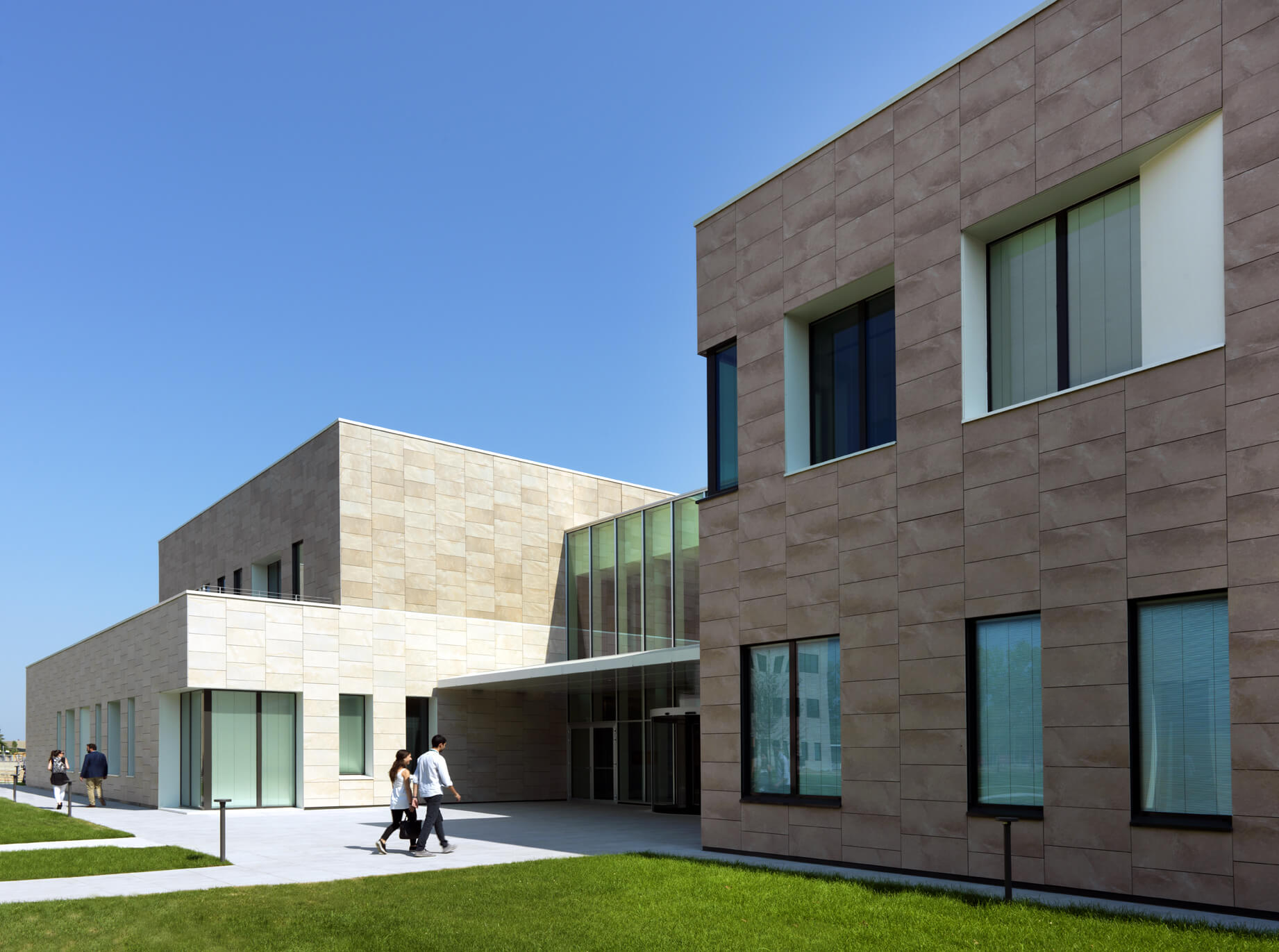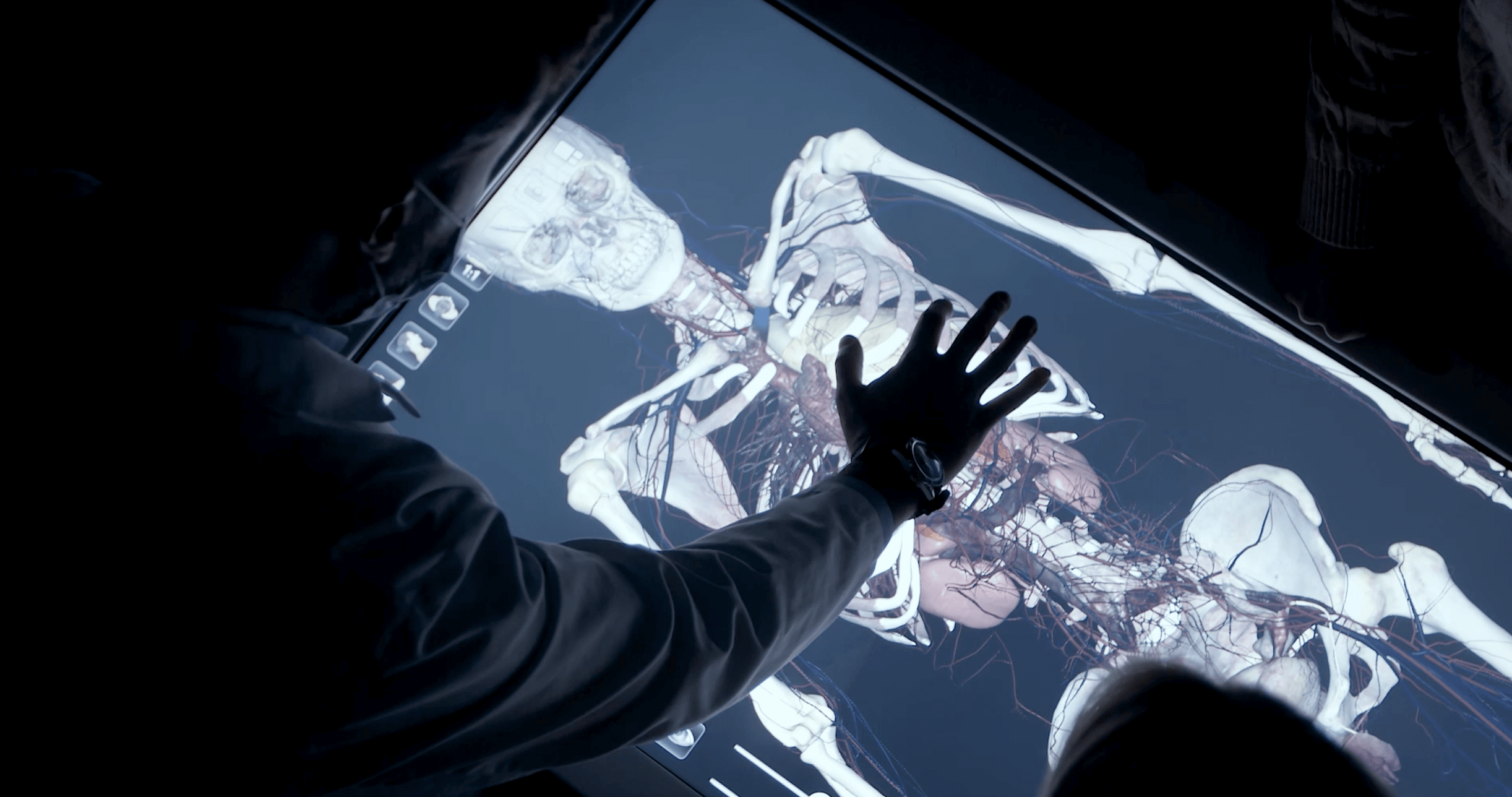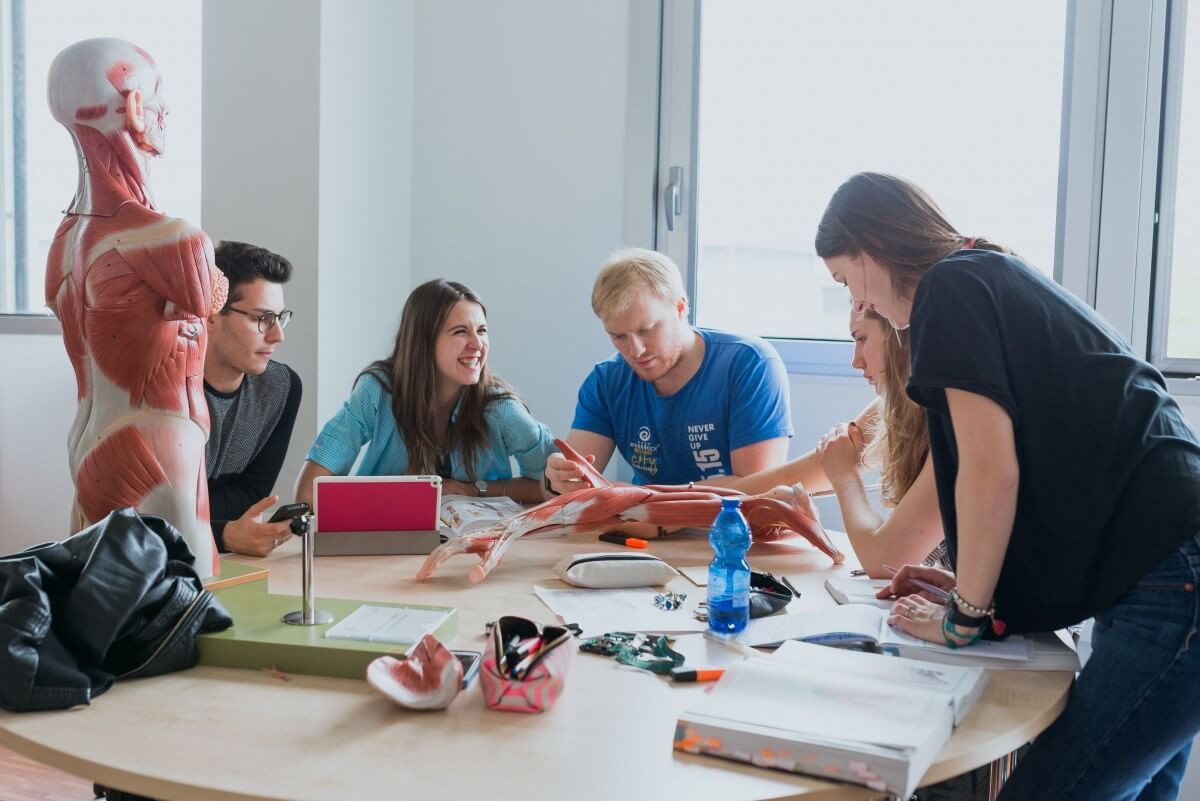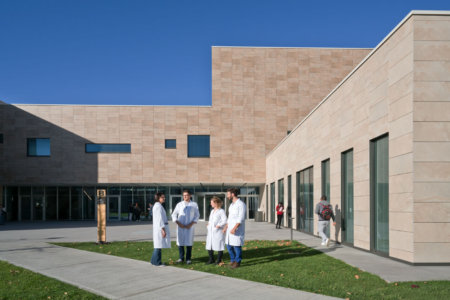Careers may come and go, but doctors are never out of style. The medical sciences is a time-honoured vocation that calls to so many aspiring doctors to look for cures with the latest technologies. At Humanitas University in Milan, learning is all about practice and experimentation in a truly international environment that welcomes students from all over the world.
Humanitas’s global outlook cannot be understated — 40% of its students come from outside Italy. An international cohort of students not only facilitates cultural understanding; it also gives prospective doctors at the university personal insights into health practices in other countries from interaction with their peers. Equipped with cutting-edge medical research facilities, Humanitas is known as an international hub to shape practice-ready doctors, physiotherapists, nurses and researchers who can adapt deftly to future scientific, technological and social change.
Integrative, cross-disciplinary approach to medicine
Where better to learn medicine than a place where surgery is live-streamed? Humanitas’s practice-based approach in medical training is interactive: students get to ask questions to surgeons directly about procedures and the bioengineering involved in surgical technology. The hands-on model offered at the university empowers students to build analytical and reflective skills that are indispensable for a successful future in clinical practice.

At Humanitas University, theory and practice are seamlessly integrated into the curriculum for a strong foundation in the latest medical developments. Source: Humanitas University
Humanitas offers an in-demand medical programme in English: Medicine and Biomedical Engineering (MEDTEC). The six-year MD course is designed to train highly capable doctors through a cross-disciplinary curriculum rooted in practical experience. The programme places a strong emphasis on interactive teaching, mainly consisting of group activities headed by a tutor.
As integrated medical technology advances rapidly, there is no shortage in demand for tech-savvy doctors. Humanitas is a pioneer on this front: it is the first university in the world to offer a combined course in medicine and biomedical engineering through its six-year MEDTEC course, offered in partnership with Politecnico di Milano. The programme is taught fully in English, and has 60 spots allocated for students from the European Union, while students outside of the EU are given 10 spots each year.
The best part? Not only do students graduate with a Doctor of Medicine degree; they are also conferred a Bachelor’s degree in Biomedical Engineering. The two-pronged specialisation will certainly enhance the credentials of MEDTEC graduates for a fulfilling career at the global stage.
What sets MEDTEC at Humanitas apart from the typical medical programme? The key to this lies in its biomedical engineering approach to fundamental science disciplines such as chemistry, physics and computer science. Doctors-in-training through MEDTEC learn elements of mathematical analysis, computer science, electrical engineering and mechanics to confront complex issues in applied medicine.
Students are given ample opportunity to put their MEDTEC training to find innovative solutions throughout their studies. The COVID-19 pandemic has opened up new avenues for research, such as this student-led project that investigates the imbalances in certain COVID-19 variants between cases and controls, which has also been published in an international journal.
As a result of their training, MEDTEC doctors are armed with a solid understanding of cutting-edge technologies, big data, AI, surgical robots and precision medicine. They stand out.
With all of this knowledge in hand, you can enhance your employability in multiple sectors internationally at the intersection of medicine and biomedical technology. Humanitas even opens the door for global mobility early on. Students are constantly encouraged to participate in international exchange programmes to nurture self-development in a globalised context.
Technologically-advanced facilities
The promise of a world-class medical education is realised in Humanitas’s advanced facilities that are just a few steps away from its campus. The Humanitas Research Hospital is a learning hub where highly-specialised teaching and research occur. Students spend a significant amount of time within, which augments their learning experience of clinical training.

The campus houses some of the world’s best medical research centres that are home to international researchers. Source: Humanitas University
Humanitas takes personalised clinical experience to another level at its Simulation Centre, dedicated to experimental teaching in anatomical surgery and medical procedures. Real-life clinical scenarios are reenacted at the centre, where students pick up on soft skills such as patient interaction and teamwork between healthcare professionals, alongside their medical knowledge.
Intensive research comes alive at the Humanitas Research Centre, home to scientists working at the forefront of human health and diseases. Students have access to a renowned centre of excellence with laboratory space, high-tech infrastructure, computational platforms, and support personnel to carry out high-quality research.
Surrounded by a supportive and advanced learning environment, Humanitas University offers the best opportunities for students to develop their technical skills and industry knowledge in contemporary medical research. The good news? The university has established merit-based scholarships worth up to 20,000 euros for EU and non-EU students.
If studying medicine and biomedical engineering in Milan sounds attractive to you, apply here today.
Follow Humanitas University on Facebook, Twitter and Instagram













